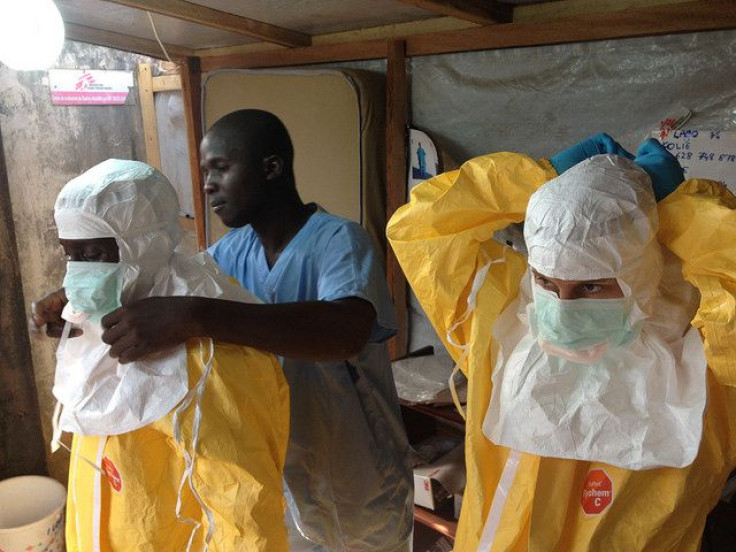CDC On Ebola: Outbreak May Persist If Local Rituals Overwhelm Wills Of Foreign Help

Since the Ebola outbreak in West Africa began several months ago, its initial crawl around the countries of Sierra Leone, Nigeria, and Liberia has accelerated to a speeding epidemic. Of the more than 1,300 suspected cases, 723 people have already died from the virus, including leading Ebola doctor Sheik Umar Khan from Sierra Leone.
Death from Ebola is quick and brutal, not to mention expected. Approximately 90 percent of people infected with Ebola succumb to its effects — persistent internal bleeding, along with fever, vomiting, and diarrhea — within the span of several days. Early treatment may reduce the risk of death to around 60 percent, but for those whom the virus manages to overpower, the challenges do not end with death. There still remains the matter of disposing of the corpse, which comes with its own unique obstacles, particularly in countries where burial rituals are engrained in the culture.
Historically, less industrialized countries have been hesitant, if fearful, to adopt Western forms of medicine. When the U.S. relief organization Doctors Without Borders arrived in Guinea last week, their presence wasn’t met with reverence. “We don’t want any contact with anyone,” Faya Iroundouno, 17, president of the youth league in Kolo Bengou, an African village where several people have been infected, told The New York Times. “Wherever those people have passed, the communities have been hit by illness.”
This week, CDC Director Tom Frieden spoke in a press conference on the role health officials must play in balancing culture and medicine. While burial rituals must be acknowledged, the health of the locals remains the top priority. Protocol dictates dead bodies get sealed in large plastic bags and for aid workers to avoid mass burials when possible. The World Health Organization has outlined certain additional standards, such as disinfecting bodies and their possessions before cremation.
According to Frieden, while such practices may seem overly intrusive in violating local custom, it is important to consider the cost in leaving even just one body unaccounted for. “It’s like fighting a forest fire,” he said during Thursday’s press conference. “If you leave behind even one burning ember, one case undetected, it could reignite the epidemic.”
These risks have already manifested in places like Liberia, where villagers have chased medical workers away because they believed the Westerners were doing more harm than good — a misconception that continues to begrudge foreign aid staff. The same story played out in Guinea in Kolo Bengou. Some efforts were met with success, thankfully. In Sierra Leone, for example, Red Cross workers took a deferential approach, asking family members how they’d like the bodies buried, all while disinfecting their belongings.
In his address, Frieden also emphasized Ebola’s tiny chance of spreading to the United States. The virus can only transfer between people through direct contact in close quarters and if one person is already sick with the virus. (Ebola, like several other diseases in certain cases, can live in a person’s system without causing illness.) In this regard, Frieden said, hospitals serve an important role in staying disease-free.
“Hospitals become amplification points if there isn’t meticulous infection control,” Frieden explained. In Uganda, for example, Ebola is more familiar to traditional healers because the CDC has worked with them to notice potential cases early on and resolve the deaths properly. “Where there used to be large outbreaks, now there are single cases where the spread stops.”
So far, the CDC and WHO have been reluctant to use experimental medications on patients infected with the virus, as they haven’t been proven safe for use. However, Dr. Jeremy Farrar, director of the Wellcome Trust, told CNN that “it would be unethical not to acknowledge that potential new treatments could both save lives and reduce transmission in this and future outbreaks.” In the meantime, workers continue to strive for sanitary disposal, despite intense and frequent backlash from people who make the fatal mistake of rejecting help, confusing correlation with causation.



























